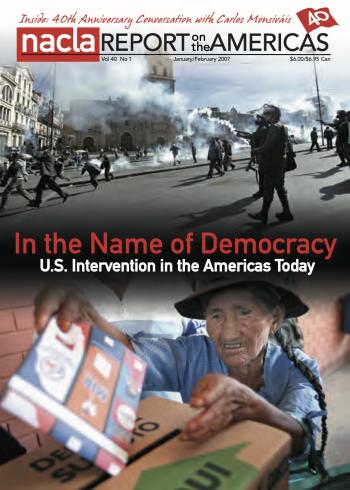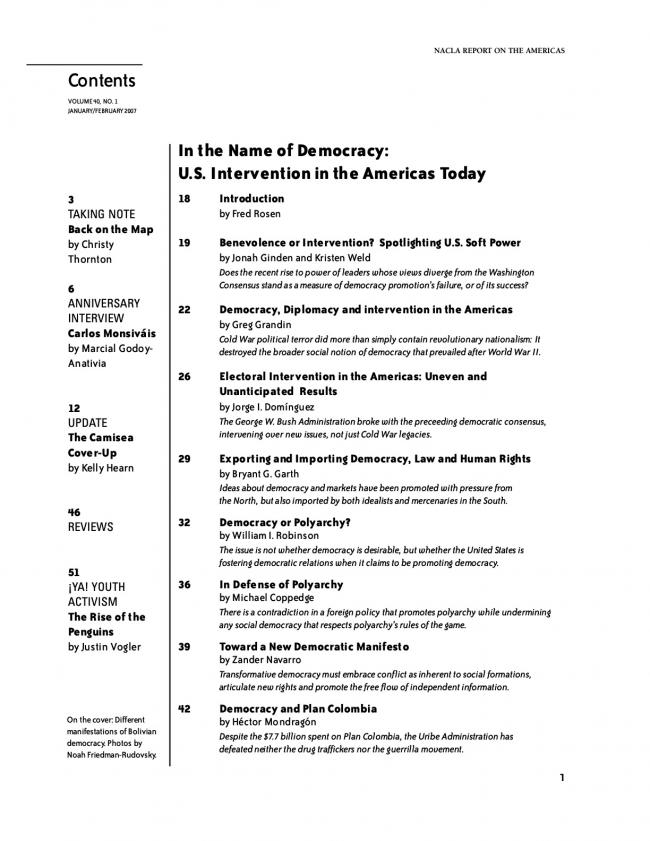Report
Jonah Ginden & Kirsten Weld
While the U.S imperial presence has emerged as a more or less acknowledged fact of the 21st century, popular references to U.S. power often gloss over a complex, amorphous system of organization and domination.
President George W. Bush has asked the American people to “be patient” so that Iraq can become like Colombia—so that the Iraqis can defeat terrorism and establish a stable democracy like the one Washington has nurtured in Colombia. I would like to comment on this nightmare.
To favor democracy means to oppose U.S. foreign policy in the name of democracy. The issue is not whether democracy is desirable—it is—but whether the United States is fostering democratic relations when it claims to be promoting democracy.1
Last year, Secretary of State Condoleezza Rice proposed that the Organization of American States (OAS) expand its Cold War mandate as a mutual-defense alliance against external threats to hemispheric security, and begin to “monitor” the internal politics of member nations to ensure they adhere to the norms of democratic procedure.
“This dispute with the United States demands leadership at the national level...even if that leadership happens to rankle some in the U.S. …I am not going to be dictated to as to the subjects I should raise.”
Following the Vietnam-related dissolution of the Cold War consensus in the 1960s, the Democratic Party divided between “hawks” who favored an emphasis on force to achieve U.S. aims and interests, and “doves” who favored softer strategies.
In an interview a few years ago, the political scientist Robert Dahl commented that what troubled him most about his discipline was its inability to settle on a definition of “democracy.” I feel the same way as I write this essay, because I think that much of the controversy that permeates this scholarly and political interchange has been generated by semantic differences.
As the old orthodoxies fade, many progressive analysts and activists have become ambivalent about the most efficacious paths to social justice and development, and even about the shape of the future itself. Some of the most cogent of these analysts now counsel “historical patience” in our attempts to map the future.


